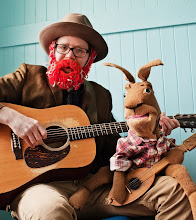I recorded this song in one take with my buddies Peter (bass, vibraphone) and Terence (guitar). As usual, I used the built-in microphone on my computer, so I apologize for the poor mix.
Sunday, January 10, 2010
Lomax-a-Day, Day 10
"The Fourth Day of July" is the old, weird America at its best. In his book The Old, Weird America, Greil Marcus, my favorite contemporary cultural critic and musicologist, offers a revelatory analysis of Clarence Ashley's version of the song, called "The Coo Coo Bird." "Depositing its orphans, leaving its progeny to be raised by others, to grow up as imposters in another's house--as America filled itself up with slaves, indentured servants, convicts, hustlers, adventurers, the ambitious and the greedy, the fleeing and the hated, who took or were given new, imposters' names--the cuckoo becomes the other and sees all other creatures as others. If the host bird removes a cuckoo's egg from its next, the cuckoo may take revenge, killing all of the host's eggs or chicks; in the same manner, as new Americans drove out or exterminated the Indians, when the cuckoo egg hatches the newborn may drive out any other nestlings or destroy any other eggs. As a creature alienated from its own nature, the cuckoo serves as the specter of the alienation of each from all." In this song, the fourth day of July, just like the Cumberland Gap (see Day 8), has a undefined historical gravity that pulls together seemingly unrelated "folk-lyric" stanzas (the name Marcus gives to interchangeable folk verses). The fourth day of July is when it all becomes clear--"and I see"--see why the cuckoo hollers 'cuckoo,' see why women love men, see old Willie passing by. On the U.S.A.'s birthday, for a glimmer of a moment, the mysterious hodgepodge of democracy makes sense. As does the parasitic behavior of the cuckoo bird--the very behavior that made our great nation.
I recorded this song in one take with my buddies Peter (bass, vibraphone) and Terence (guitar). As usual, I used the built-in microphone on my computer, so I apologize for the poor mix.
I recorded this song in one take with my buddies Peter (bass, vibraphone) and Terence (guitar). As usual, I used the built-in microphone on my computer, so I apologize for the poor mix.
Subscribe to:
Post Comments (Atom)


lovely! much appreciated.
ReplyDelete